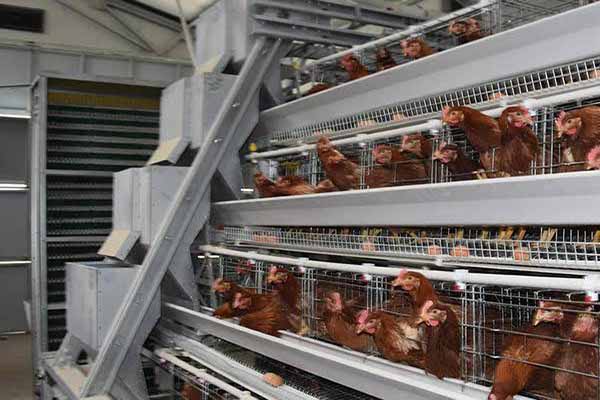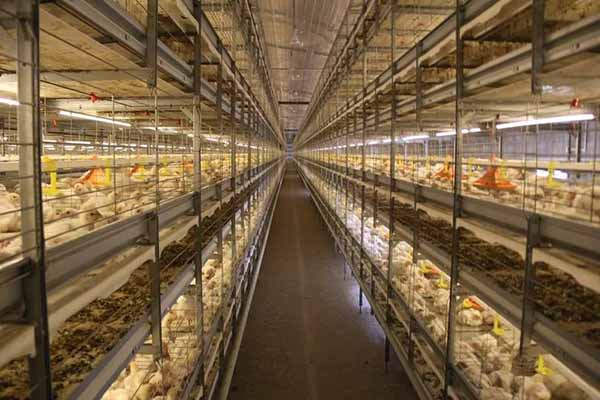Kienyeji Chicken Farming in Kenya: A Comprehensive Guide
Time : 2025-05-12
Are you thinking about starting a kienyeji chicken farming business in Kenya? You’ve come to the right place! Kienyeji chickens, known for their hardiness and excellent taste, have become a popular choice among farmers. In this comprehensive guide, we’ll delve into everything you need to know about kienyeji chicken farming in Kenya.
What is Kienyeji Chicken?
Kienyeji chickens are a local breed of chickens native to Kenya. They are known for their robust health, ability to thrive in various environments, and their delicious meat. These chickens are a cross between local chickens and various foreign breeds, making them a hardy and adaptable species.
Why Kienyeji Chicken Farming is Popular in Kenya
There are several reasons why kienyeji chicken farming has gained popularity in Kenya:
- High Demand: The demand for kienyeji chicken meat is growing due to its taste and nutritional value.
- Adaptability: Kienyeji chickens can thrive in different climatic conditions, making them ideal for both rural and urban farmers.
- Profitability: Kienyeji chickens mature quickly and can be sold at a good price, providing a steady income for farmers.
Setting Up Your Kienyeji Chicken Farm
Before you start your kienyeji chicken farming business, here are some important steps to consider:
1. Research and Planning
It’s crucial to conduct thorough research and planning before setting up your farm. This includes understanding the market demand, identifying potential challenges, and setting realistic goals.
2. Selecting the Right Location
The location of your farm is essential for the success of your kienyeji chicken farming business. Look for a place that is accessible, has good ventilation, and is away from noise and pollution.

3. Building the Coop
The coop should be well-constructed and provide adequate space for the chickens. Ensure that it is well-ventilated and protected from predators. A good coop should also have a nesting area for the hens.

4. Purchasing Chickens
When buying chickens, ensure that you are purchasing healthy kienyeji chicks. You can either buy them from local breeders or import them from reputable suppliers.
Feeding and Care
Proper feeding and care are crucial for the health and productivity of your kienyeji chickens.
1. Diet
Kienyeji chickens are omnivorous, so their diet should include a mix of grains, legumes, vegetables, and some protein sources like insects or fish. Ensure that the feed is balanced and meets the nutritional needs of the chickens.
2. Health Management
Regular health checks and vaccinations are essential to prevent diseases. It’s also important to keep the coop clean and free from waste to reduce the risk of disease.
Marketing Your Kienyeji Chicken Products
Marketing is key to the success of your kienyeji chicken farming business. Here are some tips for marketing your products:
- Direct Sales: Sell directly to customers through your farm or local markets.
- Wholesale: Establish relationships with local restaurants and retailers.
- Online Marketing: Utilize social media and online platforms to reach a wider audience.
Challenges and Solutions
Like any farming business, kienyeji chicken farming comes with its challenges. Here are some common challenges and their solutions:
- Predation: Install predator-proof fencing and secure your coop to protect your chickens.
- Disease: Implement a strict biosecurity program, including regular health checks and vaccinations.
- Market Fluctuations: Diversify your market by selling different products, such as eggs, feathers, or even live birds.
Conclusion
Starting a kienyeji chicken farming business in Kenya can be a rewarding venture. By following this comprehensive guide, you can increase your chances of success. Remember to conduct thorough research, plan carefully, and provide proper care for your chickens. With dedication and hard work, you can build a profitable and sustainable kienyeji chicken farming business.
your chickens. With dedication and hard work, you can build a profitable and sustainable kienyeji chicken farming business.











